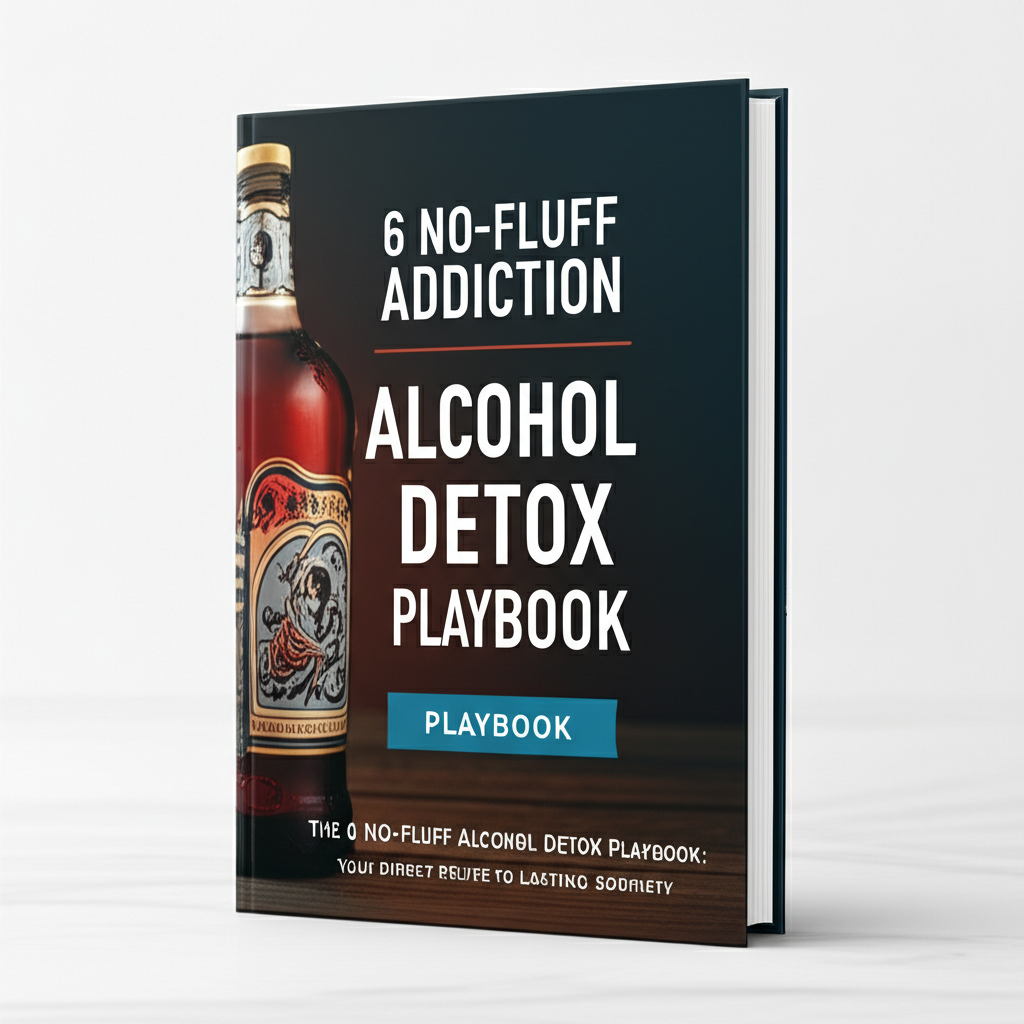Facing alcohol addiction is a profound act of courage, a deeply personal battle that many wage in silence. The decision to seek help, particularly to undergo alcohol detox, is the most critical first step towards reclaiming your life. It’s a powerful declaration of hope and a commitment to a healthier future. However, the path to sobriety is rarely simple, and the detoxification process itself can be daunting, even dangerous, if not managed correctly.
This comprehensive guide is designed to demystify alcohol detox, offering clarity, support, and practical information. We’ll explore the "3 Best" approaches to alcohol detox – not as a ranking, but as the most effective and widely recognized pathways, each suited to different individual needs and circumstances. Our goal is to empower you with knowledge, help you understand what to expect, and guide you toward making an informed, safe decision for yourself or a loved one. Remember, you are not alone, and a life free from the grip of alcohol addiction is absolutely within reach.
Understanding Alcohol Detox: The Critical First Step
Before diving into the different detox methods, it’s crucial to understand what alcohol detox truly entails and why professional supervision is not just recommended, but often essential.
What is Alcohol Detox?
Alcohol detox, or detoxification, is the process by which your body rids itself of alcohol and its toxic byproducts after a period of heavy or prolonged drinking. When someone with alcohol dependence stops drinking, their brain and body, which have adapted to the constant presence of alcohol, go into a state of shock. This abrupt cessation triggers a range of uncomfortable, and potentially life-threatening, withdrawal symptoms.
The primary goal of detox is to safely manage these withdrawal symptoms, stabilize the individual physically, and prepare them for the next stage of recovery, which typically involves therapy and ongoing support.
Why is Professional Detox Essential?
Attempting to detox from alcohol alone, especially after heavy or long-term use, is extremely dangerous. The body’s reaction to alcohol withdrawal can be severe, unpredictable, and rapidly escalate.
Dangers of Unsupervised Withdrawal:
- Seizures: One of the most common and immediate dangers, potentially leading to injury or even death.
- Delirium Tremens (DTs): A severe form of alcohol withdrawal involving sudden and severe mental or nervous system changes, including confusion, hallucinations, rapid heart rate, high blood pressure, and fever. DTs are a medical emergency and can be fatal without immediate treatment.
- Dehydration and Electrolyte Imbalances: Vomiting and sweating can lead to critical fluid and electrolyte loss, affecting heart and brain function.
- Cardiovascular Issues: Irregular heartbeats, high blood pressure, and increased risk of heart attack or stroke.
- Severe Anxiety and Panic Attacks: Intense psychological distress can exacerbate physical symptoms.
- Malnutrition: Chronic alcohol use often leads to nutritional deficiencies, which can worsen withdrawal symptoms.
Common Alcohol Withdrawal Symptoms:
The severity and type of symptoms vary widely based on the individual’s drinking history, overall health, and genetic factors. They can begin as early as 6 hours after the last drink and peak within 24-72 hours, though some symptoms can persist for weeks.
- Mild Symptoms (6-12 hours):
- Tremors (shaky hands)
- Anxiety and nervousness
- Headache
- Nausea and vomiting
- Insomnia
- Sweating
- Increased heart rate and blood pressure
- Moderate Symptoms (12-48 hours):
- More intense tremors
- Hallucinations (auditory, visual, tactile)
- Seizures (especially in those with a history of severe withdrawal)
- Severe Symptoms (48-72+ hours – Delirium Tremens):
- Severe disorientation and confusion
- Agitation and extreme mood disturbances
- Fever
- Profound sweating
- Rapid heart rate and high blood pressure
- Full-body tremors
- Severe hallucinations and delusions
Medical professionals can administer medications to alleviate these symptoms, monitor vital signs, and intervene rapidly if complications arise, making professional detox the safest and most effective starting point for recovery.
The 3 Best Approaches to Alcohol Detox
When considering alcohol detox, there isn’t a single "best" option for everyone. The most effective path is highly individualized, depending on factors like the severity of addiction, medical history, support system, and personal preferences. However, three primary approaches stand out as the safest and most widely recommended: Inpatient Medical Detox, Outpatient Medical Detox, and in very specific, rare circumstances, Medically Supervised At-Home Detox.
A. Inpatient Medical Detox: The Gold Standard for Safety
Inpatient medical detox, also known as residential detox, is considered the safest and most comprehensive option, particularly for individuals with moderate to severe alcohol dependence. It involves staying at a specialized facility 24/7, where you receive constant medical supervision and support.
Who It’s Best For:
- Individuals with a history of severe alcohol withdrawal symptoms, including seizures or Delirium Tremens (DTs).
- Those with long-term or heavy alcohol use.
- People with co-occurring mental health disorders (e.g., depression, anxiety, PTSD) or other medical conditions that could complicate detox.
- Individuals with an unstable or unsupportive home environment.
- Anyone who has previously tried and failed outpatient detox.
Benefits of Inpatient Medical Detox:
- 24/7 Medical Supervision: Constant monitoring by doctors, nurses, and addiction specialists.
- Medication Management: Immediate administration of medications (like benzodiazepines) to prevent and reduce withdrawal symptoms.
- Safe and Structured Environment: Removes individuals from triggers and provides a calm, therapeutic setting.
- Comprehensive Care: Includes nutritional support, hydration, and often initial therapy sessions.
- Immediate Crisis Intervention: Ability to respond quickly to any medical emergencies.
- Focus on Recovery: Allows the individual to fully concentrate on their health without external distractions.
What to Expect:
Upon arrival, you’ll undergo a thorough medical assessment. Medications will be administered to ease withdrawal symptoms and prevent complications. The detox process typically lasts 3-10 days, depending on the individual. During this time, staff will monitor your vital signs, provide comfort, and offer emotional support. Many inpatient programs also begin integrating foundational therapy and aftercare planning, setting the stage for long-term recovery.
B. Outpatient Medical Detox: Flexibility with Supervision
Outpatient medical detox allows individuals to live at home while attending daily appointments at a clinic or treatment center. This option provides medical supervision and medication management without the need for a residential stay.
Who It’s Best For:
- Individuals with mild to moderate alcohol dependence.
- Those with a stable, supportive home environment free from alcohol and triggers.
- People with strong motivation and the discipline to attend all scheduled appointments.
- Individuals who cannot take extended time off from work, school, or family responsibilities.
- Those without a history of severe withdrawal symptoms or co-occurring medical/psychiatric conditions that require inpatient care.
Benefits of Outpatient Medical Detox:
- Flexibility: Allows individuals to maintain daily routines and responsibilities.
- Cost-Effective: Generally less expensive than inpatient programs.
- Comfort of Home: Allows recovery in a familiar environment.
- Continuity of Support: Can integrate family support more easily.
Considerations and Risks:
While flexible, outpatient detox requires significant self-discipline and a safe home environment. The risks include:
- Increased Risk of Relapse: Exposure to triggers and the availability of alcohol at home can make it harder to resist cravings.
- Delayed Medical Intervention: While supervised, immediate medical help isn’t constantly available as in an inpatient setting.
- Less Intensive Support: May not be sufficient for individuals who need more structured care.
What to Expect:
You’ll have an initial medical assessment, followed by daily or near-daily visits to the clinic. During these visits, medical staff will check your vital signs, assess your withdrawal symptoms, and dispense or adjust medications. You’ll receive education about withdrawal and recovery, and often have access to individual or group counseling. It’s crucial to have a reliable support person at home who can monitor your well-being between appointments.
C. Medically Supervised At-Home Detox: For Very Specific, Low-Risk Cases
Medically supervised at-home detox is the least common and most restrictive option. It involves receiving medical guidance and prescriptions from a doctor while detoxing in your own home, typically with remote monitoring. This approach is only suitable for a very small percentage of individuals and carries the highest level of risk if criteria are not strictly met.
Who It’s Best For (Extremely Specific Criteria):
- Individuals with very mild alcohol dependence (e.g., short-term, low-quantity use).
- No history of severe withdrawal symptoms (seizures, DTs).
- Excellent overall physical and mental health with no co-occurring disorders.
- A highly stable, alcohol-free home environment with a dedicated, sober support person present 24/7.
- Immediate access to emergency medical care (e.g., close to a hospital).
- Exceptional self-discipline and motivation.
- A doctor who is comfortable and experienced in managing this type of detox remotely.
Risks and Why It’s Rarely Recommended Without Strict Criteria:
The primary risk is the potential for severe, life-threatening withdrawal symptoms to emerge rapidly and without immediate professional intervention. The lack of constant medical presence makes this option inherently more dangerous than inpatient or outpatient clinic-based detox. Many medical professionals are hesitant to recommend it due to these risks.
Essential Elements of a Safe At-Home Detox (If Approved by a Doctor):
- Thorough Medical Assessment: A comprehensive evaluation by a doctor to determine suitability.
- Prescribed Medications: Medications (e.g., benzodiazepines) provided with clear instructions and a schedule.
- Daily Check-ins: Regular (often daily or twice-daily) communication with the medical team via phone, video call, or home visits.
- 24/7 Support Person: A sober adult must be present at all times to monitor symptoms and intervene if needed.
- Emergency Plan: A clear plan for when to seek emergency medical attention.
Important Note: Never attempt an unsupervised at-home detox. The risks far outweigh any perceived benefits. Always consult with a healthcare professional before considering this option.
What to Expect During Alcohol Detox
Regardless of the setting, the detox process follows a general pattern designed to ensure safety and comfort.
Initial Assessment
Before detox begins, a comprehensive assessment is crucial. This typically includes:
- Medical History: Review of past and present health conditions, medications, and substance use history.
- Physical Exam: To assess overall health and identify any immediate concerns.
- Psychological Evaluation: To screen for co-occurring mental health disorders.
- Drug Screening: To identify any other substances in the system.
- Severity Assessment: To determine the level of alcohol dependence and potential for severe withdrawal.
This assessment helps the medical team create a personalized detox plan, choosing the most appropriate setting and medications.
The Detoxification Process
Once the assessment is complete, the active detox phase begins.
- Medications: The cornerstone of safe alcohol detox is medication management.
- Benzodiazepines (e.g., Ativan, Valium, Librium): These are the most commonly used medications. They help to calm the nervous system, reduce anxiety, prevent seizures, and alleviate tremors. The dosage is typically tapered down over several days.
- Anti-Seizure Medications: Sometimes used in conjunction with benzodiazepines, especially for individuals with a history of seizures.
- Naltrexone: Can be introduced after detox to help reduce cravings and prevent relapse by blocking the euphoric effects of alcohol.
- Acamprosate: Helps reduce long-term cravings by restoring the brain’s chemical balance.
- Disulfiram (Antabuse): Causes an unpleasant reaction (nausea, vomiting, headache) if alcohol is consumed, acting as a deterrent.
- Supportive Care:
- Hydration: IV fluids may be administered to prevent dehydration and correct electrolyte imbalances.
- Nutrition: Balanced meals and vitamin supplements (especially B vitamins like thiamine) are essential to address nutritional deficiencies common in chronic alcohol users.
- Comfort Measures: A calm, quiet environment, comfortable bedding, and emotional support help manage anxiety and discomfort.
- Monitoring: Throughout detox, medical staff will continuously monitor vital signs (heart rate, blood pressure, temperature, breathing), neurological status, and withdrawal symptom severity.
Preparing for Aftercare
Detox is merely the first step. Towards the end of the detox process, a critical focus shifts to planning for aftercare. This involves discussing and arranging ongoing treatment options, such as:
- Inpatient rehabilitation programs
- Intensive Outpatient Programs (IOP)
- Partial Hospitalization Programs (PHP)
- Individual therapy
- Group therapy
- Support groups (e.g., Alcoholics Anonymous, SMART Recovery)
- Sober living environments
A solid aftercare plan significantly increases the chances of long-term sobriety.
Choosing the "Best" Detox for You: Key Considerations
Deciding which detox approach is "best" for you or a loved one involves a careful evaluation of several factors. It’s always recommended to consult with an addiction specialist or medical doctor to get personalized advice.
Severity of Addiction
This is perhaps the most critical factor.
- Severe Addiction/Heavy Use: Inpatient medical detox is almost always recommended due to the high risk of severe withdrawal.
- Mild to Moderate Addiction: Outpatient medical detox might be suitable, provided other factors align.
- Very Mild/Short-term Use (Rare): Medically supervised at-home detox might be an option under strict medical guidance.
Medical History & Co-occurring Conditions
- History of Severe Withdrawal: If there’s a past history of seizures, DTs, or other serious complications, inpatient care is non-negotiable.
- Other Health Issues: Chronic illnesses (heart disease, liver disease, diabetes) or co-occurring mental health disorders (depression, anxiety, bipolar disorder) necessitate 24/7 medical oversight, making inpatient detox the safest choice.
Support System
- Strong, Sober Support: A reliable and sober support network at home is vital for outpatient or at-home detox. This includes family or friends who can monitor you and ensure you adhere to your treatment plan.
- Lack of Support/Unstable Home: If your home environment is unstable, filled with triggers, or lacks adequate support, inpatient detox offers a safe haven.
Financial & Logistical Factors
- Insurance Coverage: Check what your insurance plan covers for different types of detox.
- Program Costs: Outpatient is generally less expensive than inpatient. At-home detox, if feasible, might involve consultation fees and medication costs.
- Time Commitment: Inpatient requires taking time away from responsibilities. Outpatient offers more flexibility.
- Geographic Location: The availability of suitable facilities in your area.
Personal Preferences
While safety is paramount, personal comfort and preferences can play a role. Some individuals prefer the privacy of home, while others thrive in the structured, community environment of an inpatient facility. However, personal preference should never override medical safety recommendations.
The most crucial step is to consult with a qualified healthcare professional or addiction specialist. They can conduct a thorough assessment and recommend the safest and most effective detox approach tailored to your unique needs.
Beyond Detox: The Path to Lasting Recovery
It is vital to understand that detox is not a cure for alcohol addiction; it is merely the first, albeit essential, step. Addiction is a complex disease that requires ongoing treatment and support for long-term recovery.
Once the body has been safely cleared of alcohol, the real work of addressing the underlying psychological and behavioral aspects of addiction begins. This involves:
- Therapy and Counseling: Individual and group therapy (e.g., Cognitive Behavioral Therapy, Motivational Interviewing) help individuals understand the root causes of their addiction, develop coping mechanisms, and learn new, healthier behaviors.
- Support Groups: Participation in 12-step programs like Alcoholics Anonymous (AA) or other peer-support groups like SMART Recovery provides a community of understanding, shared experience, and ongoing encouragement.
- Lifestyle Changes: Adopting healthy habits, including regular exercise, balanced nutrition, stress management techniques, and finding new hobbies, contributes significantly to sustained sobriety.
- Aftercare Planning: A robust aftercare plan ensures continued support and guidance, reducing the risk of relapse.
Embracing these ongoing recovery efforts is what truly transforms lives and paves the way for a fulfilling, alcohol-free future.
Conclusion
The journey to overcome alcohol addiction begins with the courageous decision to detox. This comprehensive guide has illuminated the critical importance of medically supervised detox, outlining the "3 Best" approaches – inpatient, outpatient, and in rare, specific cases, medically supervised at-home detox. Each path offers a safe way to navigate withdrawal, but the "best" choice is always a deeply personal one, determined by the severity of addiction, individual health, and available support systems.
Remember, alcohol detox is not a journey to embark on alone. The potential dangers of unsupervised withdrawal are too significant to ignore. By understanding your options and seeking professional guidance, you can choose the safest, most effective path to clear your body of alcohol and lay the groundwork for a successful, lasting recovery.
There is hope, and there is help. Taking that first step towards a healthier, sober life is the most powerful decision you can make. Don’t delay—reach out to a healthcare professional or an addiction treatment specialist today to discuss your options and begin your path to freedom.








